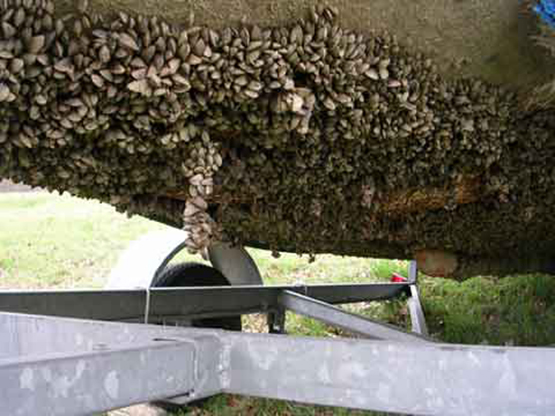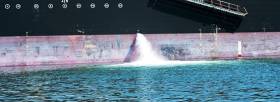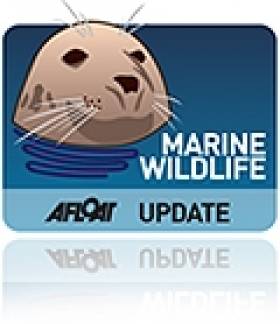Displaying items by tag: zebra mussels
DAERA Aims to Assuage Concerns Over Invasive Zebra Mussels at Key Fish Farm for Northern Ireland’s Public Angling Estate
Northern Ireland’s Department of Agriculture, Environment and Rural Affairs (DEARA) has published an FAQ regarding the impact of zebra mussels on the public angling estate.
Fears have been expressed that tens of thousands of fish could be culled after the invasive mussel was discovered at Movanagher Fish Farm, which supplies brown and rainbow trout to DAERA, as the Belfast Telegraph reported last month.
Since the discovery this past June, DAERA says it “has taken a precautionary approach and suspended movements of live fish from Movanagher fish farm for stocking to other fisheries to ensure compliance” with the Wildlife (Northern Ireland) Order 1985.
“The Department is currently considering Agri Foods and Biosciences Institute’s scientific advice to inform the way forward,” it adds.
DAERA also moved to assuage concerns over the perceived delay in its taking action, saying: “There is no scheduled stocking over the summer due to the warmer weather conditions. In addition, a temporary suspension of stocking into the PAE was put in place on 19 July.
“DAERA used the time during the summer to consider additional information to fully assess the zebra mussel issue and its impact on the fish farm and the department’s stocking programme.”
Meanwhile, Movanagher Fish Farm remains open despite the suspension of the PAE stocking programme, and DAERA says it is “currently considering options in relation to it and the stocking of fish into the PAE waters”.
Loughs Agency Issues Biosecurity Advise As Invasive Zebra Mussels Are Spotted in Newry Canal
Fishery officers from the Loughs Agency recently observed zebra mussels (Dreissena polymorpha) near Victoria Lock at the Newry Canal.
Zebra mussels are an invasive non-native Species (INNS), meaning they have been transported outside of their natural geographic range only to proliferate in their new environment, contributing to habitat loss, species extinction, ecosystem impacts, risks to human health and economic impacts.
Multiple specimens from a range of age classes were observed in the Newry Canal during low water conditions at the end of the summer. The presence of several age classes suggests an established, spawning population, the Loughs Agency says.
Zebra mussels were first recorded in Ireland in 1997 on the lower part of the navigable Shannon system, although it is believed that the species may have actually arrived years earlier. They were first reported in Northern Ireland in 1998 at Lower Lough Erne and, by 2010, a confirmed spawning population was present in Lough Neagh.
Although zebra mussels are now widespread across the island of Ireland, they still present a number of significant ecological, social and commercial threats to native systems. The introduction of this invasive species can lead to unprecedented ecological changes, which occur as a result of zebra mussel settlement, filter feeding and excretion. The combination of these factors has the potential to significantly alter native ecosystems.
Social and commercial factors associated with zebra mussel invasions involve the detrimental effects of mussel ‘biofouling’ on man-made structures such as recreational and commercial watercraft, water intake and cooling systems on industrial plants, jetties and pontoons.
Other economic issues arise from the potential loss of income or employment as a result of the negative ecological impacts, which includes a reduction in the density of an economically valuable species. These impacts all have financial implications in terms of management, mitigation and prevention.
Loughs Agency chief executive Sharon McMahon said: “Invasive species have arrived and are continuing to arrive across the island of Ireland through a variety of vectors, almost universally caused by human actions. Therefore, it is imperative that preventative measures are taken to avoid further spread and introductions.
“It is the responsibility of all water users to ensure that invasive non-native species are not transferred between water bodies. Do not introduce zebra mussels to any new sites and all sightings of the species should be reported. Avoid fouling of boats and equipment, and ensure everything is clean before moving to any new waterbodies. In addition, do not move ballast water between waterbodies.“”
Invasive Species Northern Ireland recommends the ‘Check Clean Dry’ approach for best practice in biosecurity on Ireland’s waterways. For further details on INNS found within the Foyle and Carlingford catchments, visit the Loughs Agency website.
Government Delays For Five Years Signing Up To United Nations Treaty For Marine Environment Protection – PODCAST
Five years ago the Department of Transport told the United Nations agency dealing with safety at sea and the marine environment that it was preparing to ratify a treaty drawn up by the UN intended to control the spread of invasive marine species which could cause damage in Irish waters, possibly wiping out native marine species and causing damage to the marine environment generally.
Five years later, while 51 nations around the world have signed the Ballast Water Management Convention drawn up by the International Maritime Organisation, Ireland still hasn’t done so, despite a request from the Secretary General of the Organisation.
The treaty is designed to counter the threat to marine ecosystems caused by potentially invasive species carried across the oceans of the world in ships’ ballast water. Ballast water is essential to the safe and efficient operation of modern shipping, providing balance and stability to unladen and partly laden ships. Because shipping transports up to 90 per cent of the world’s traded commodities, it is reckoned to transfer up to 5 billion tonnes of ballast water around ports of the world every year and that is claimed by scientists to be the main cause of introducing non-native species from one country to another.
When Peru, this month, became the 51st State to accede to the Treaty to try to control this problem, I asked the International Maritime Organisation if Ireland had ratified…
“Not yet” I was told from IMO Headquarters in London, with the additional quote from their spokesperson… “but it is apparently intending to … Well that is what Ireland said in 2011” and they sent me a copy of Marine Notice No.47 of 2011 from the Department of Transport which stated that “Ireland’s maritime administration is at present preparing the legislation that is required and intends to ratify the Convention when this process is complete…”
Five years later, the IMO suggested to me that it might be worth asking why Ireland had not signed… I did and the Department told me…that “provision to give effect to the Convention was made in the Sea Pollution Miscellaneous Provisions Act of 2006. Now that’s ten years ago, but it seems a Statutory Instrument has been drafted by the Department to give effect to the Convention in Irish law. However, subject to some legal clarifications the Department expects that the Order will be enacted only …” shortly after the Convention comes into force…”

Zebra mussels on the hull of a boat
Thereby hangs the rub…This treaty has actually been hanging around since 2004, that’s 12 years ago, even as the problems of invasive species increased with specific threats identified in Ireland by Government task forces, to freshwater river systems, lakes and coastal areas. To come into effect it needs a minimum of 30 States to approve it which would represent 35 per cent of world merchant shipping tonnage. 51 States have done so but they represent only 44.87 per cent of tonnage. Ireland’s access would only add .02 per cent tonnage, but the Secretary General of the IMO has appealed to every nation to support the Convention… so why is Ireland delaying, saying that it won’t sign until the Convention comes into force… in other words waiting for other nations to support it while Ireland won’t?
Senator Grace O’Sullivan is the Green Party’s spokesperson on the environment and says Ireland could push the treaty along if the Government would sign it, while Richie Flynn, Executive of IFA Aquaculture on behalf of fish farmers, isn’t surprised by the failure to sign, but it doesn’t please him.
Hear their views and the Podcast above.
'Toxic Maltesers' To Tackle Scourge of Zebra Mussels
A UK-based manufactuer of pesticides has developed a so-called 'toxic malteser' to help tackle the scourge of invasive zebra mussels.
The razor-edged mussels have no natural predators in UK and Irish waters so spread rapidly and wreak havoc on water treatment plants and other industrial facilities, from oil rigs to ship hulls, fish farms and power stations.
But Cambridge firm Biobullets claims its pellet-sized toxin - which is deadly to zebra mussels but harmless to other marine wildlife - is the solution to the problem.
Aside from their own environmental benefits, the pellets also help avoid the old method of removing mussels by dousing them in chlorine, which is toxic in high doses.































































